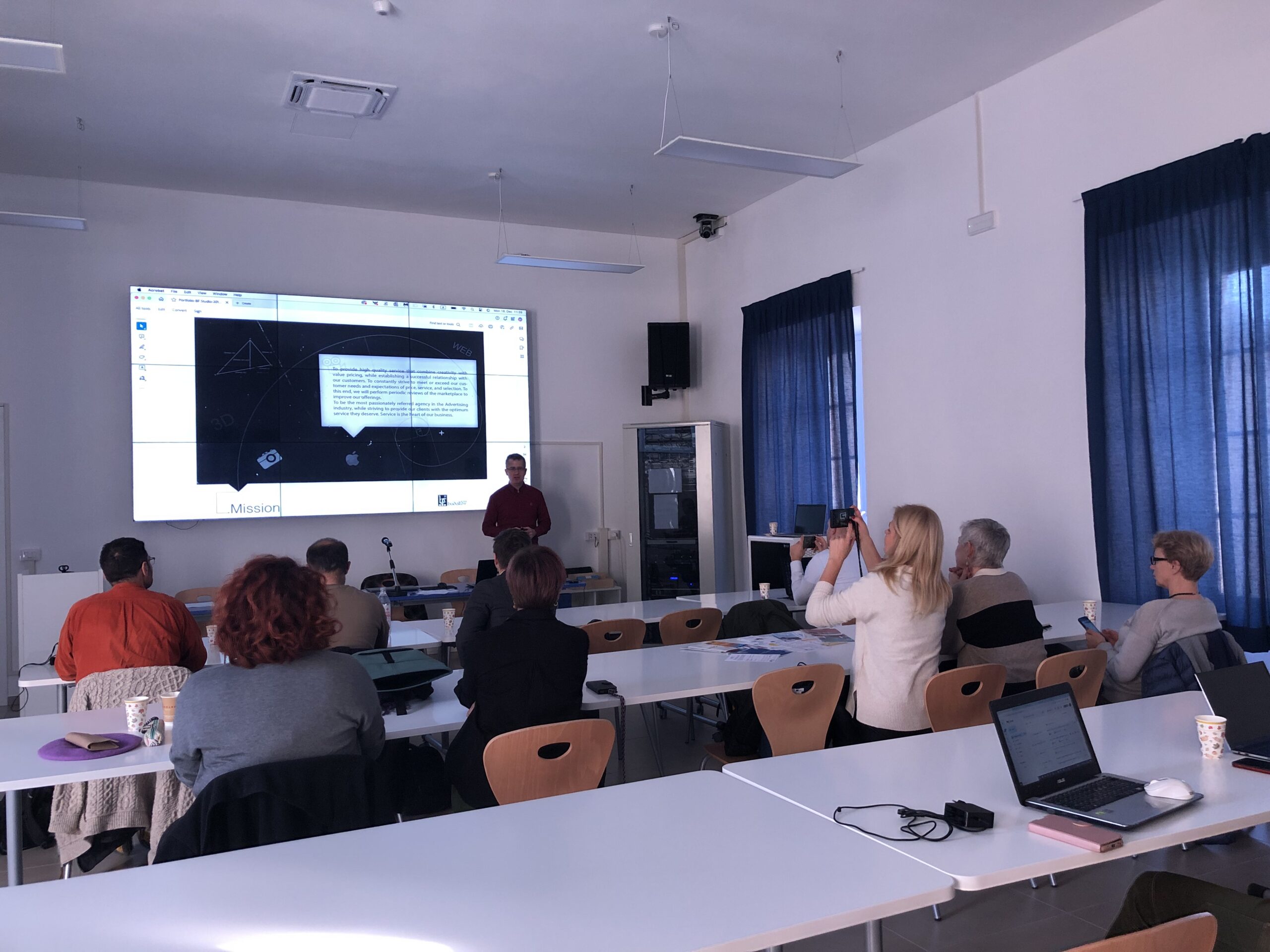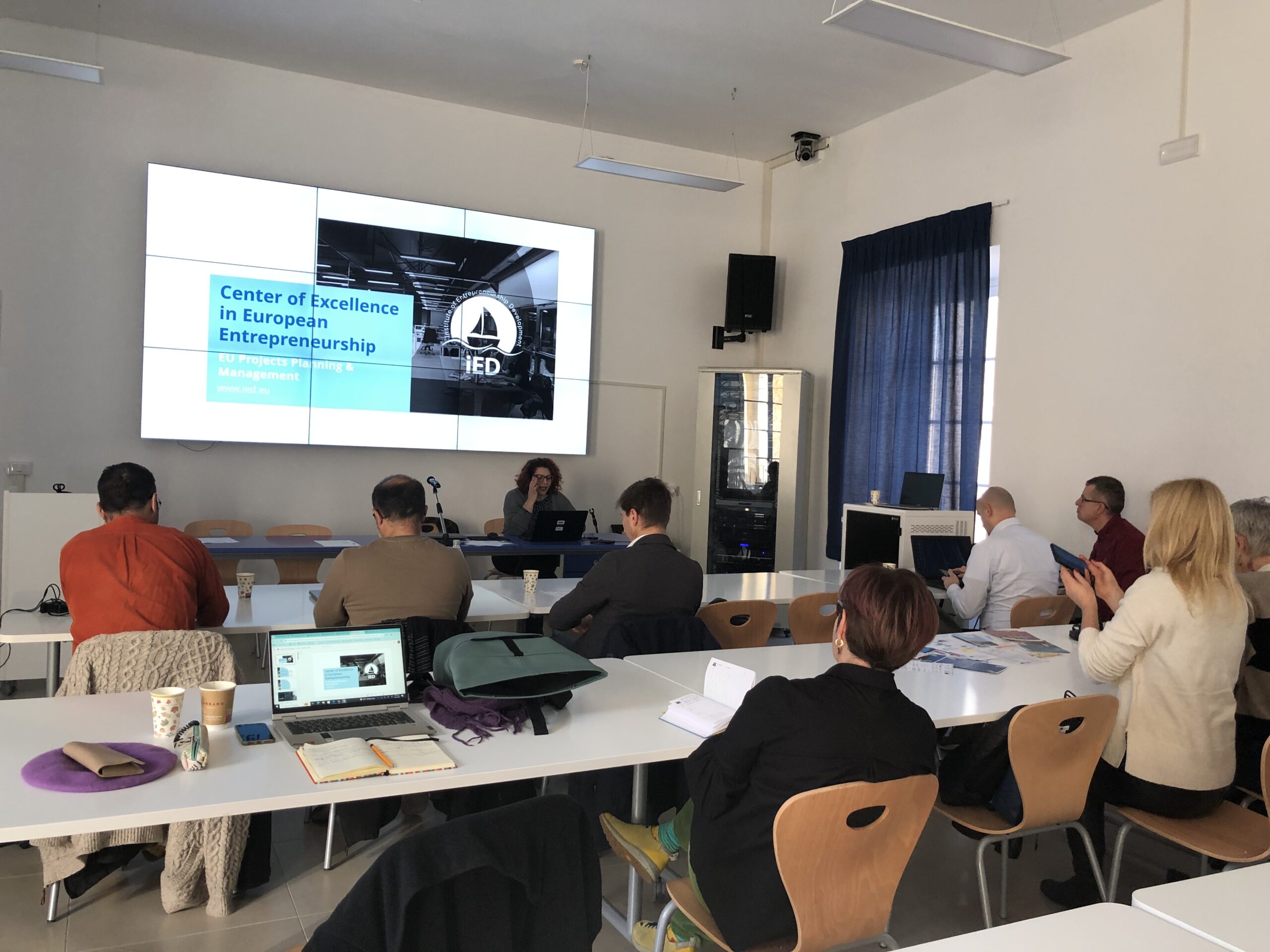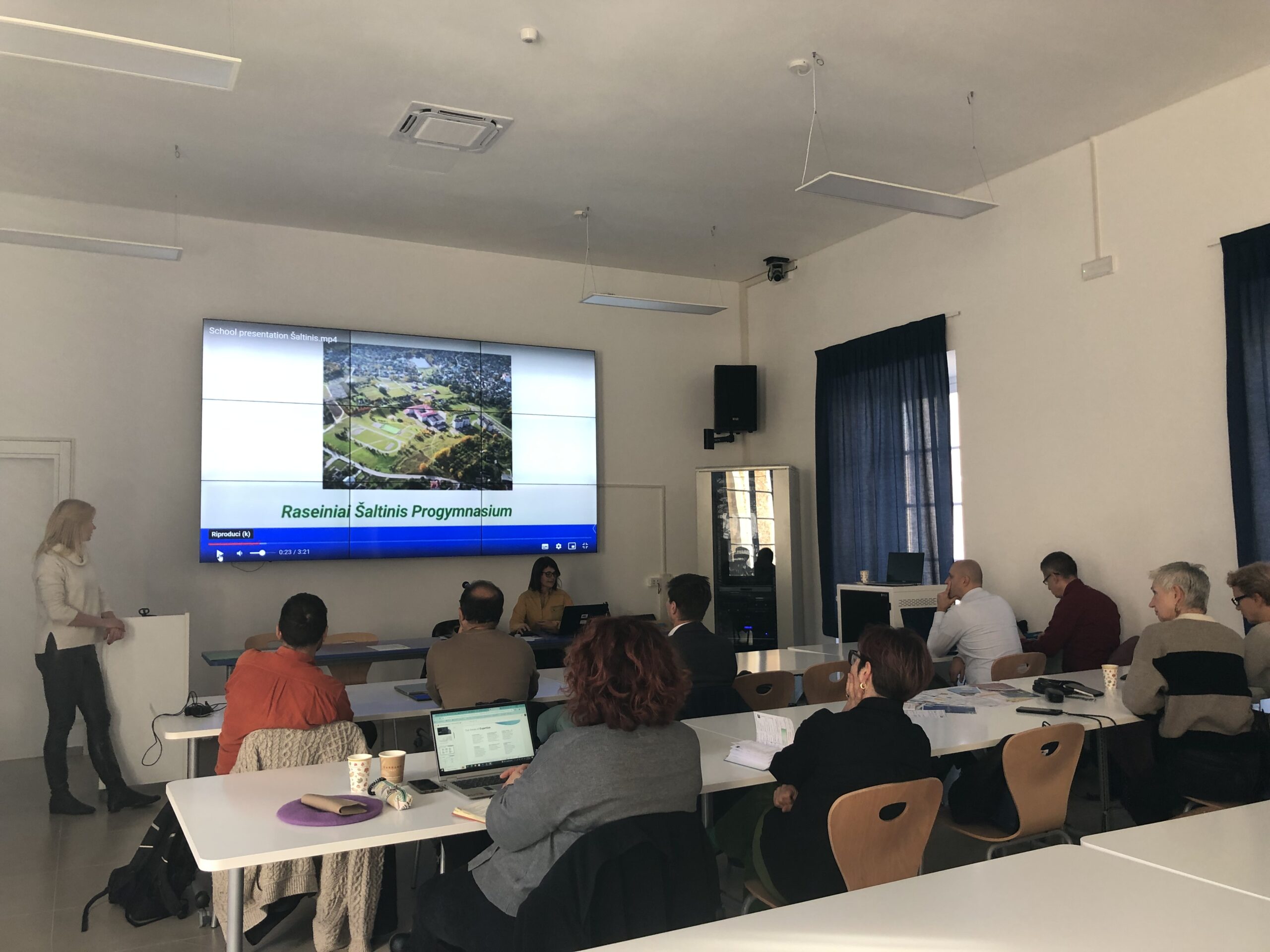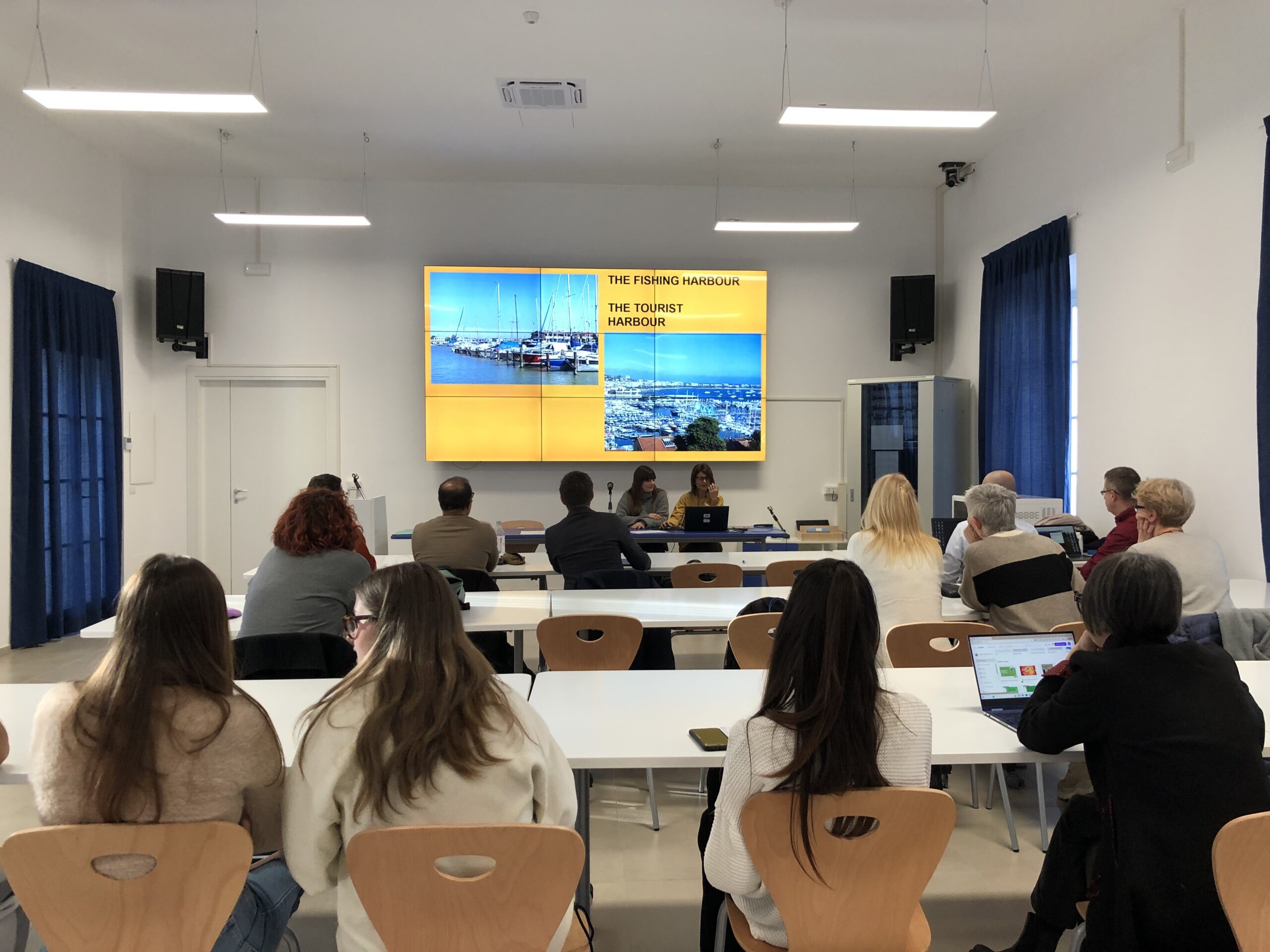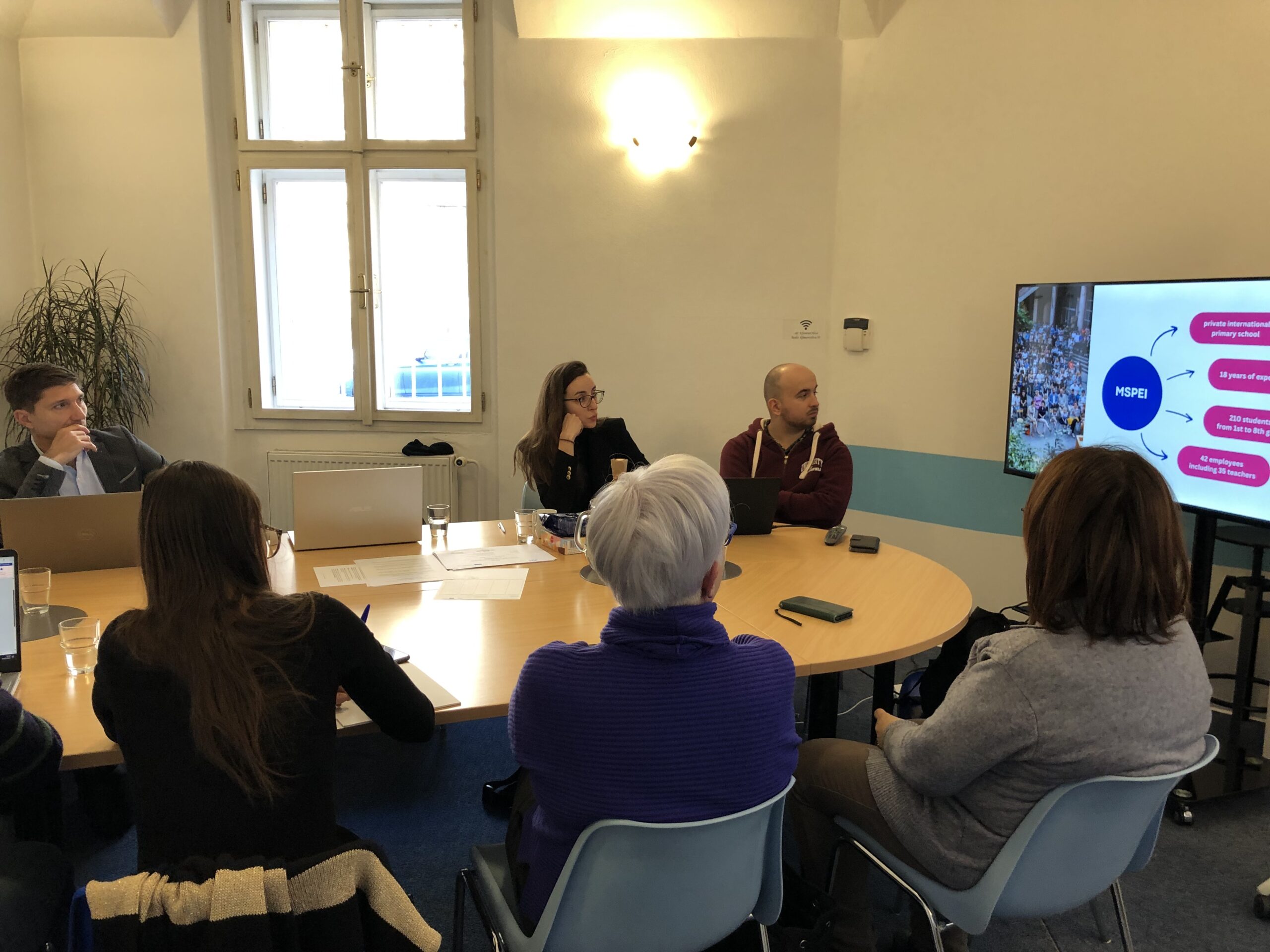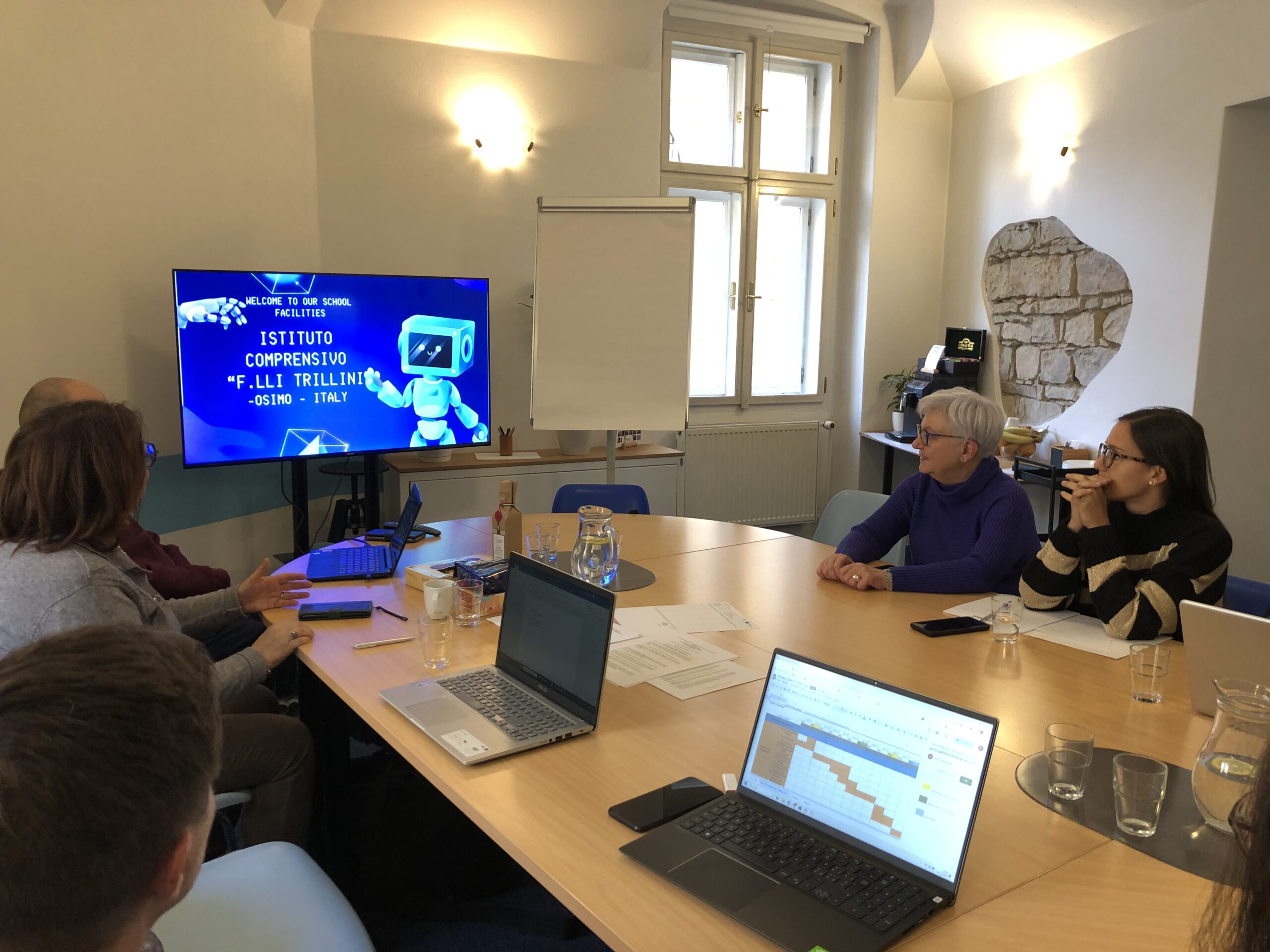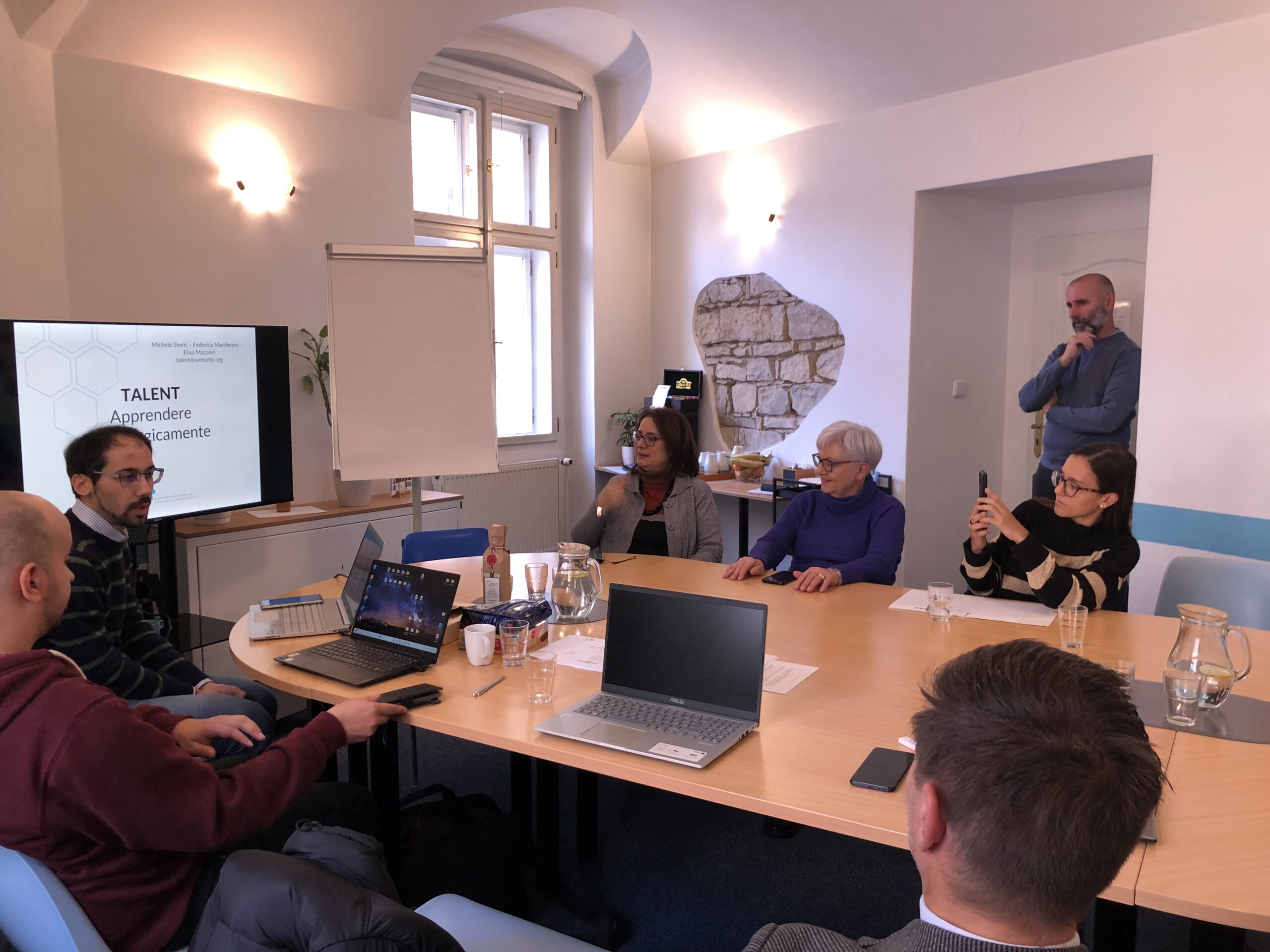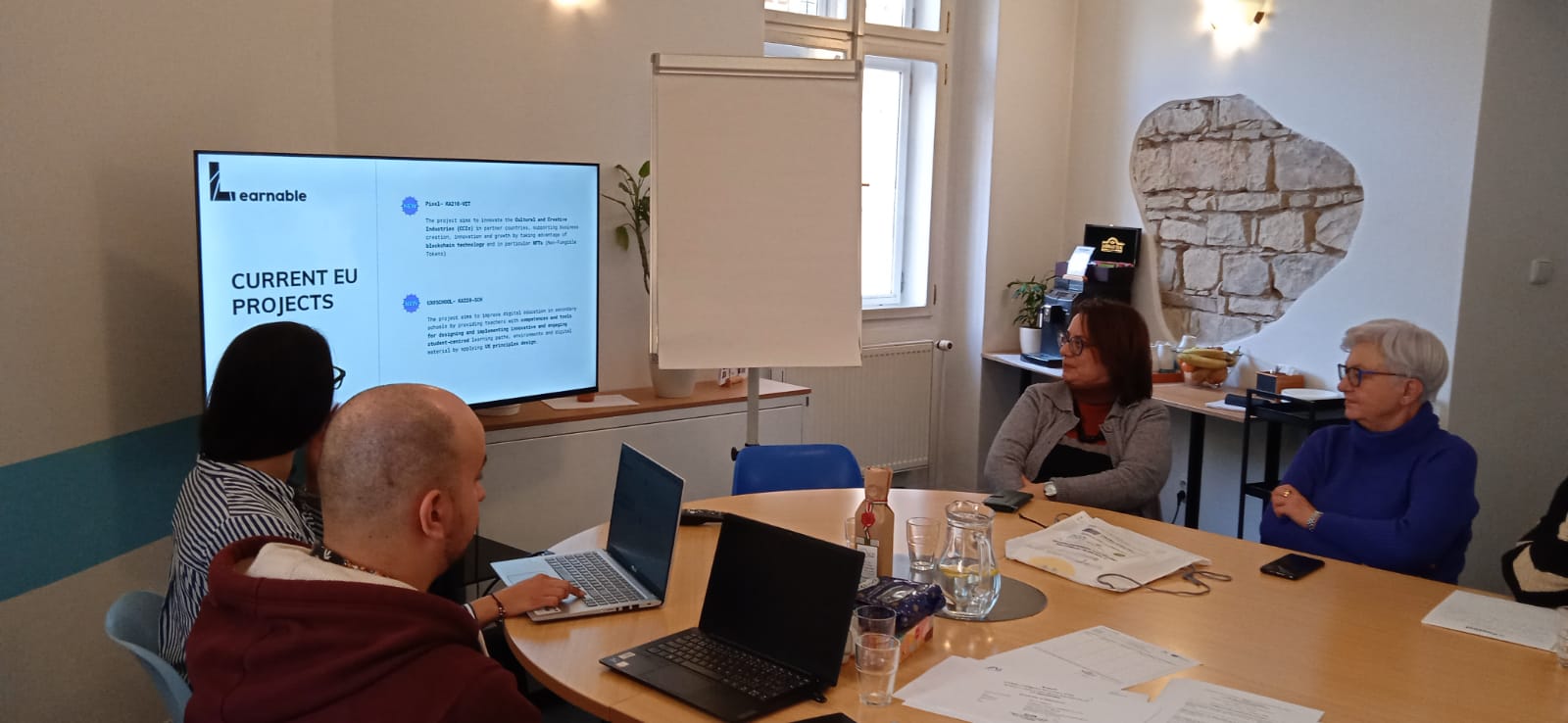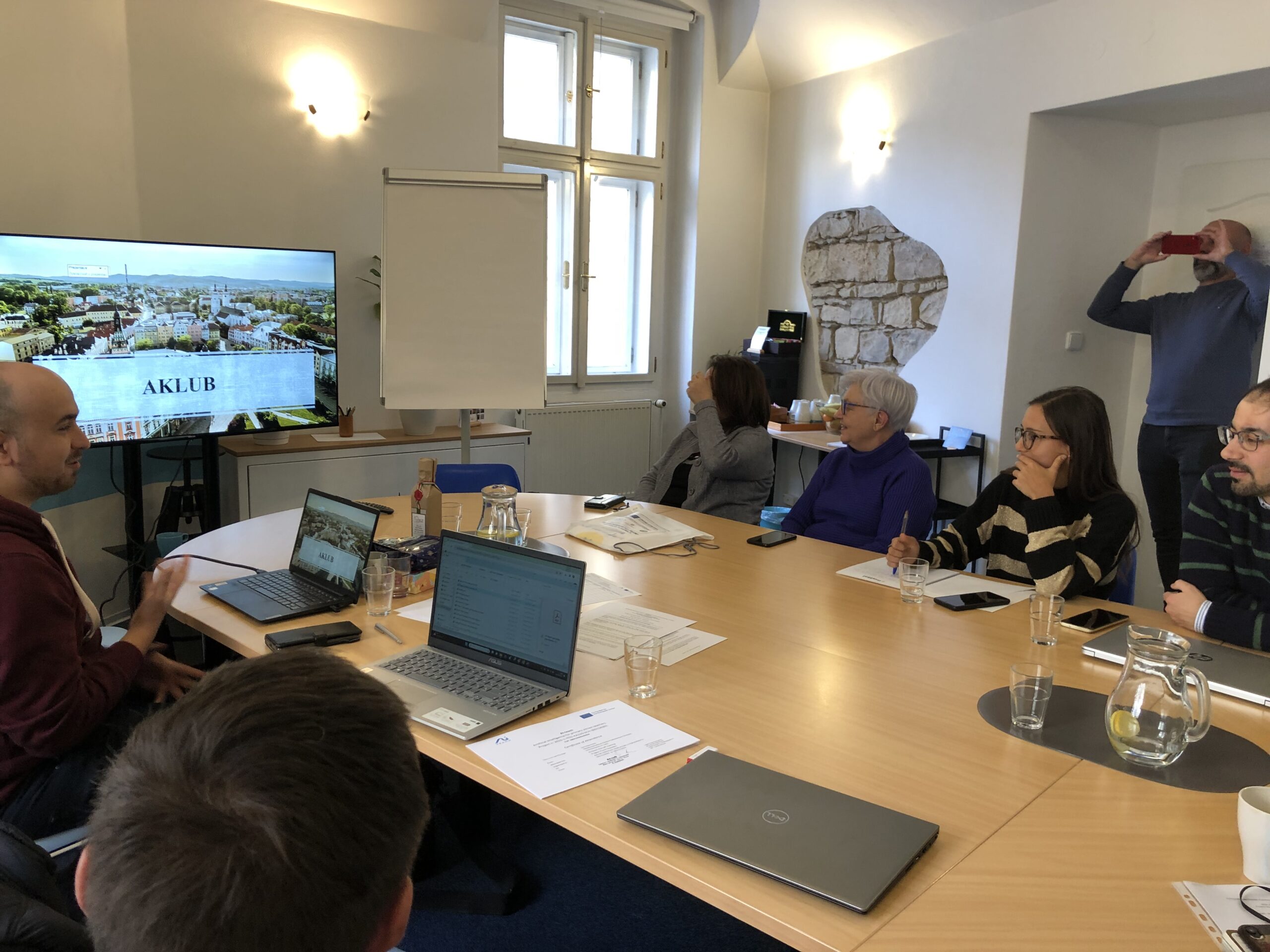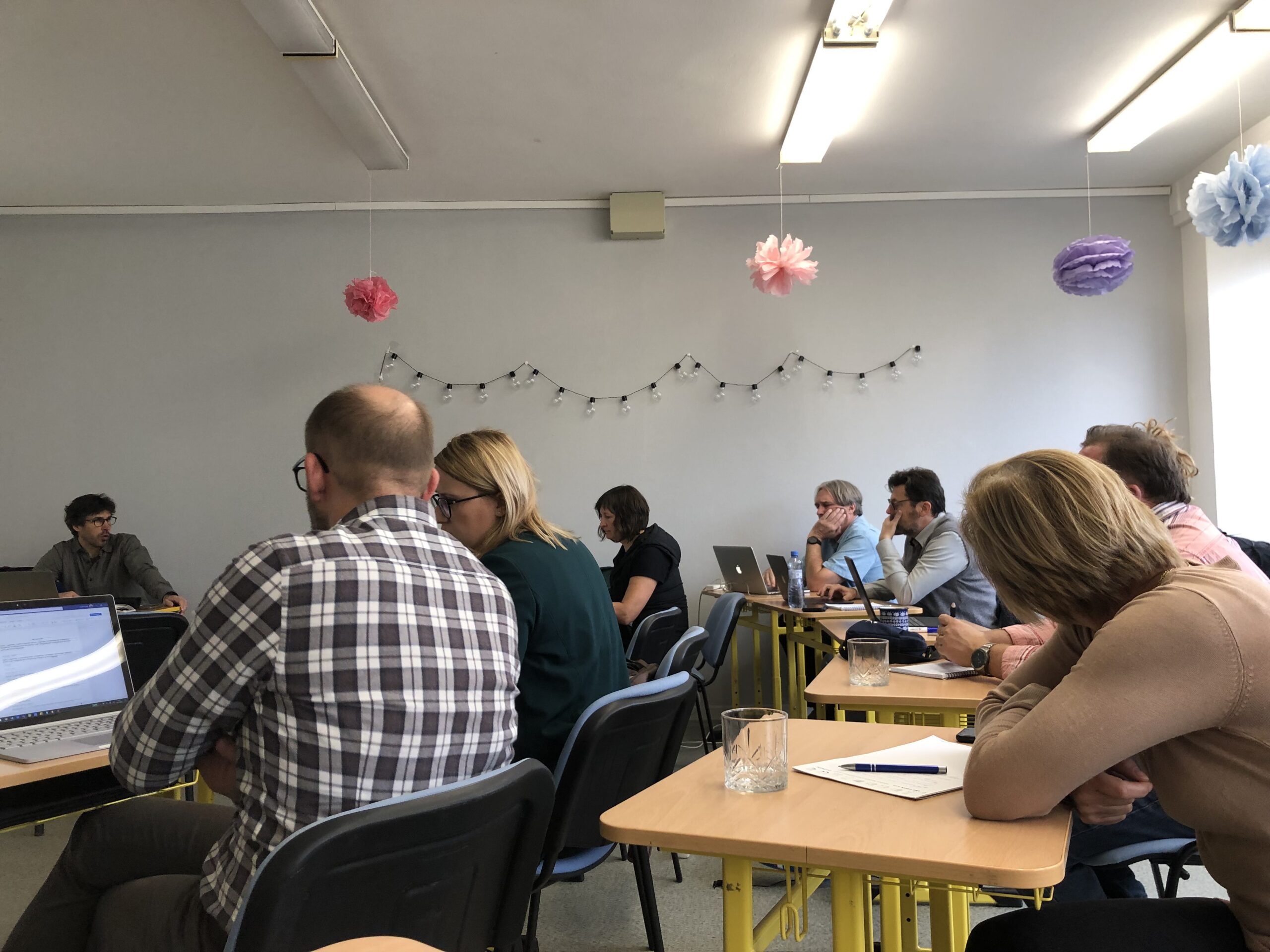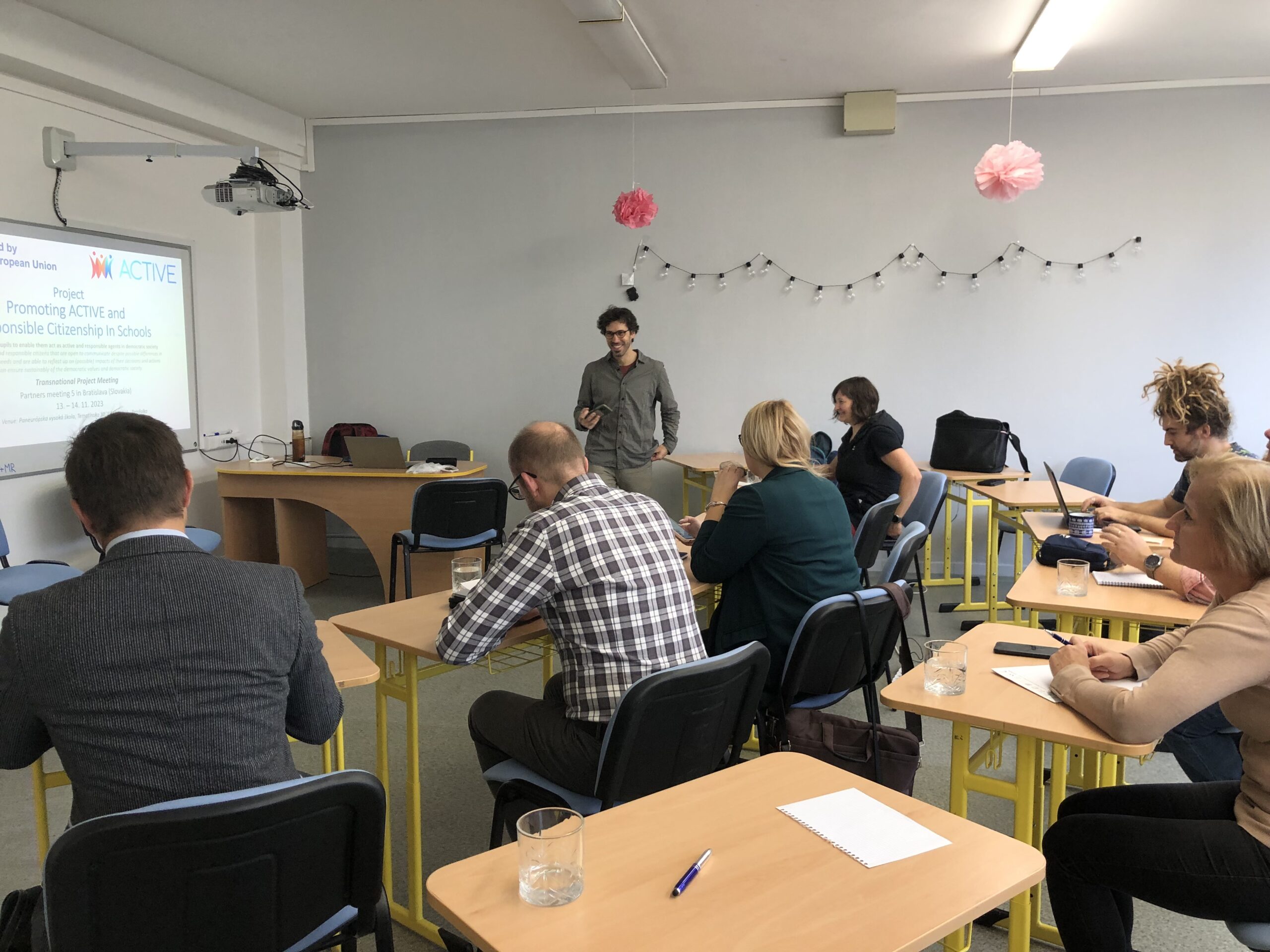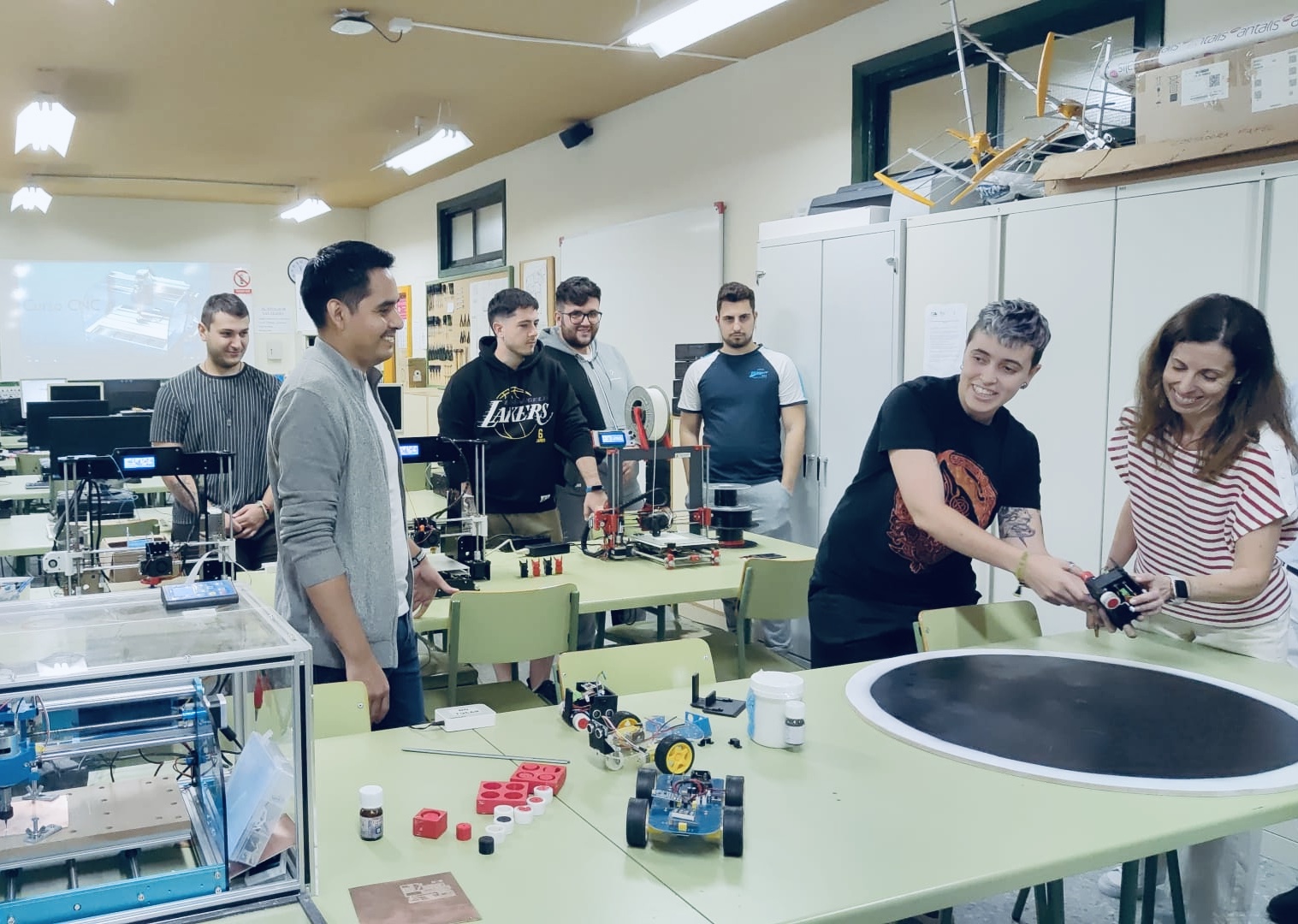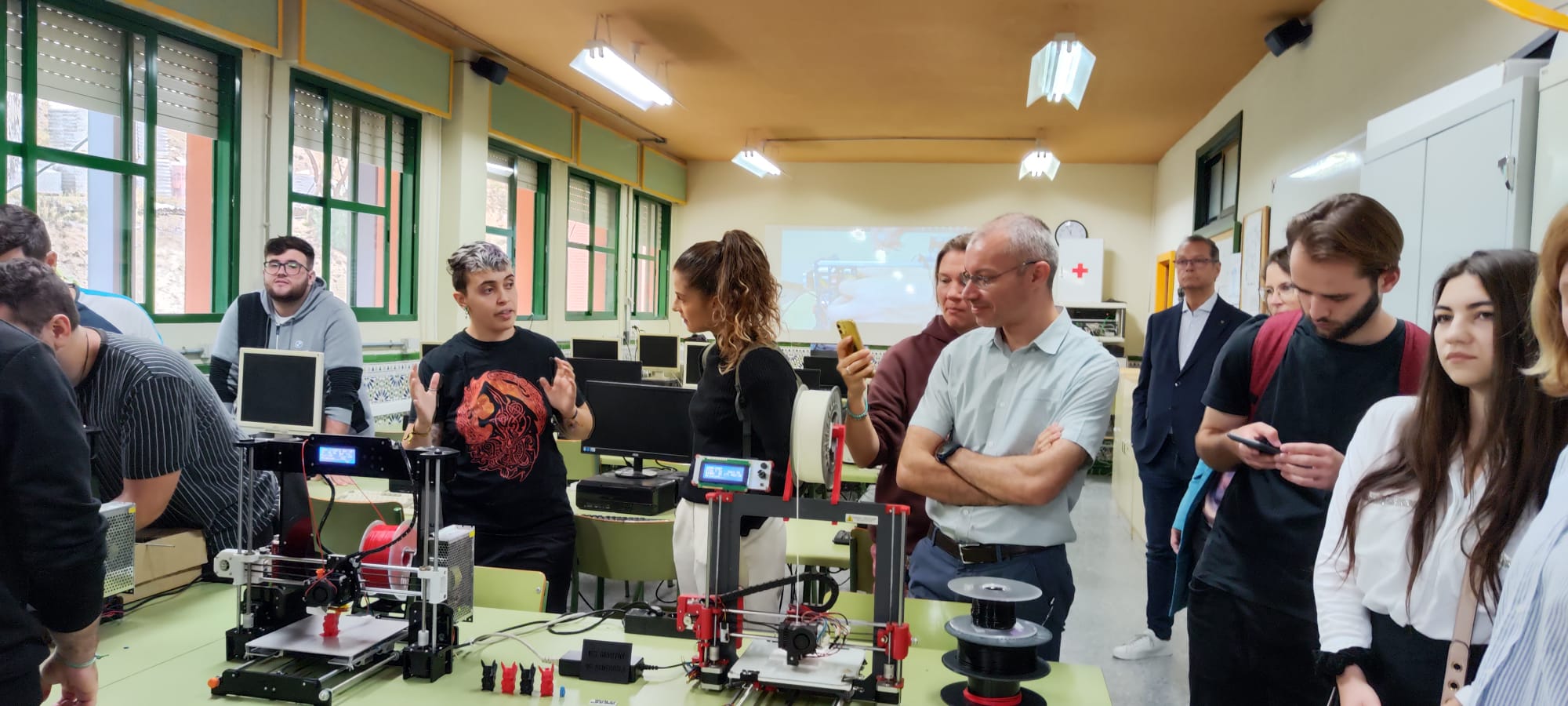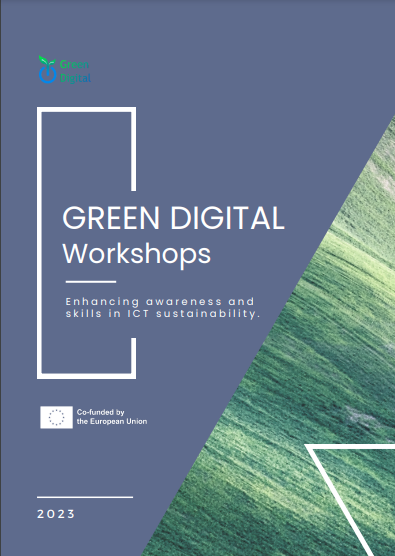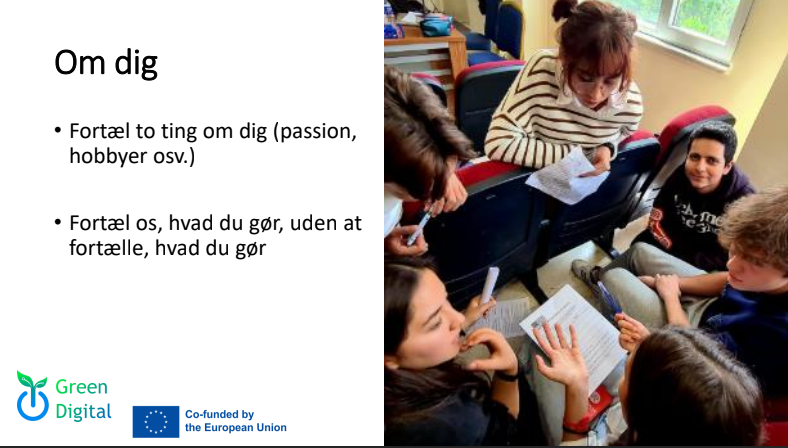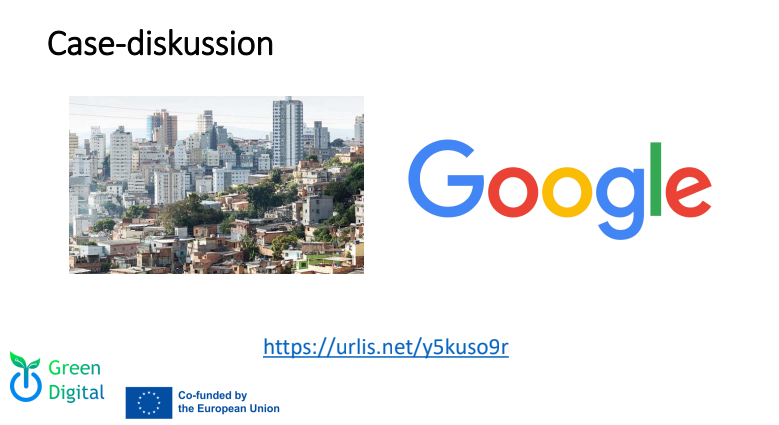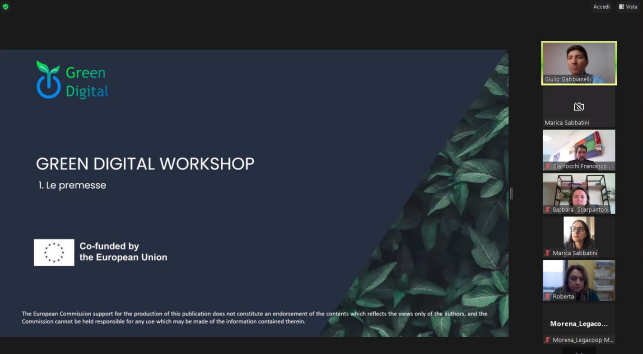UX@School Kick-off meeting
The UX@School kick-off meeting was held in Fano (Italy) on 18-19 December 2023.
The main goal of the project is to strengthen the role of teachers and trainers in designing student-centred digital environments, activities and materials, exploiting the potential of UX Design in order to improve engagement and effectiveness of distance learning in schools.
During the meeting, the partners had the opportunity to present their organisations and define the work plan for the coming months.
The topics discussed were as follows:
- Project Overview and Results, with a focus on the main work packages, including:
- the production of the Handbook, providing basic theory on UX principles, tools, and examples for applying UX Design concepts to the creation of digital environments and materials for effective learning processes.
- the production of the Online Track System for monitoring and evaluating student user experience while interacting with online learning artifacts and environments, based on UX principles.
- Project Dissemination and Expected Outcomes
- Administrative and supporting documents that are required for successful project management and reporting
- Quality Assurance
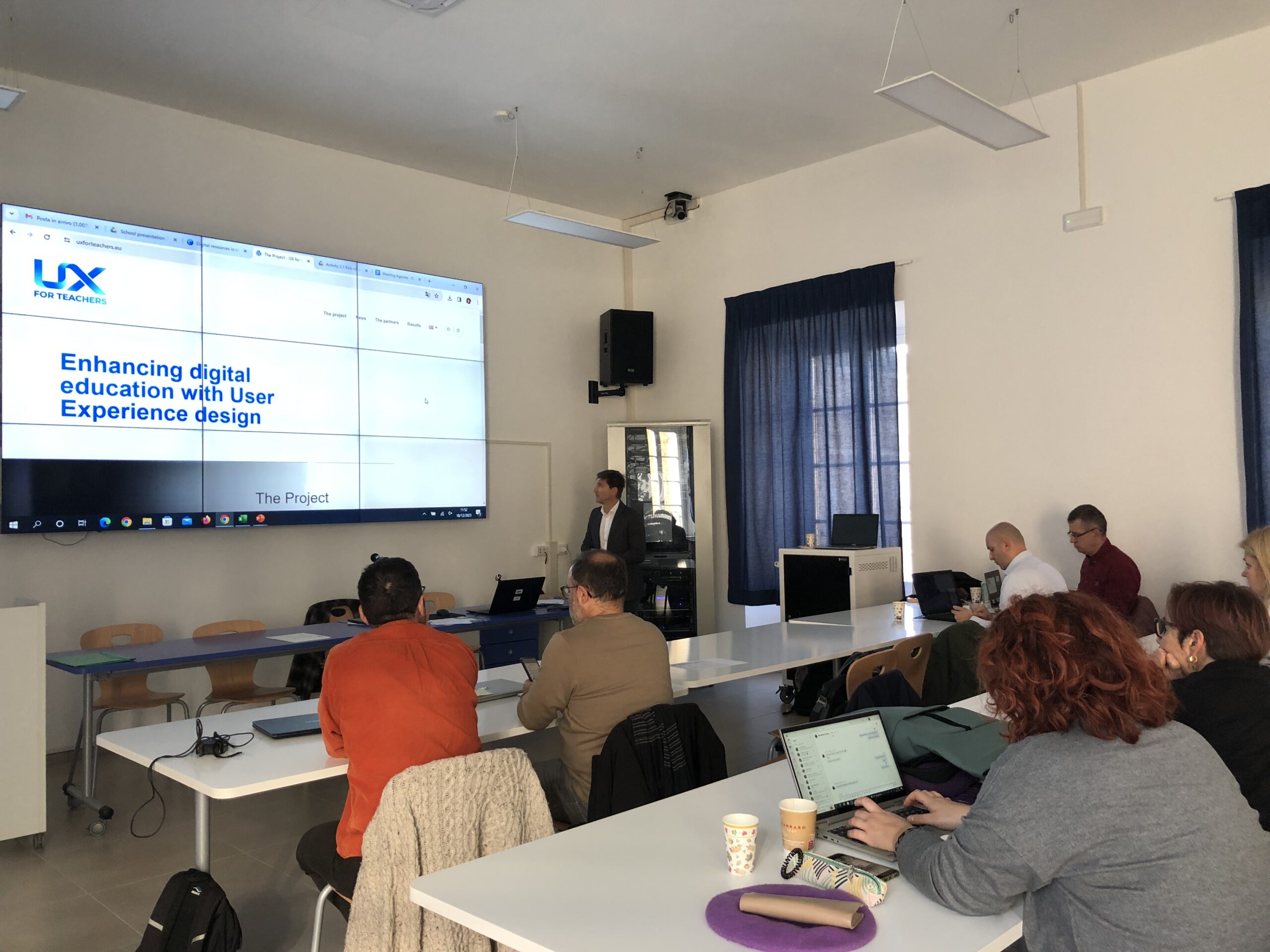
The partnership will now be involved in defining the methodology for the focus group and questionnaire to establish the structure of the Handbook and the Online Tracking System.
To stay updated on project developments, the project website and social media pages will be created soon.
AI-teach Kick-off meeting
The AI-teach kick-off meeting was held in Prague (Czech Republic) on 04-05 December 2023.
The main goal of the project is to improve the understanding of the potential challenges and opportunities related to the appropriate, responsible and interdisciplinary use of AI-driven tools in primary education.
During the meeting, the partners had the opportunity to present their organisations and define the work plan for the coming months.
The topics discussed were as follows:
- Project Overview and Results, with a focus on the main work package, namely the production of the Handbook that will improve primary school teachers’ competencies in designing, implementing and evaluating effective AI-based learning responsibly and ethically.
- Project Dissemination and Expected Outcomes
- Administrative and supporting documents that are required for successful project management and reporting
- Quality Assurance
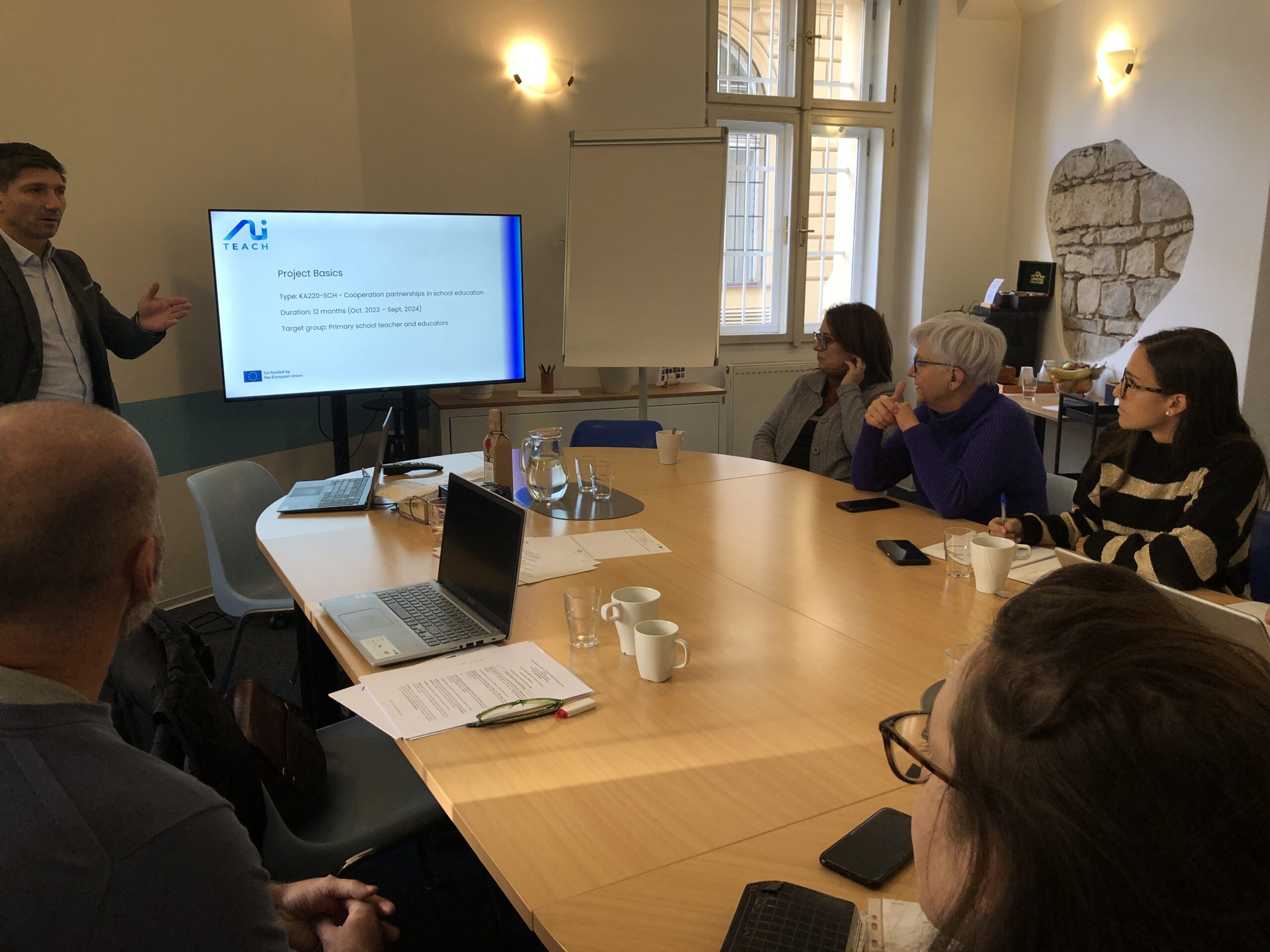
The partnership will now be involved in defining the structure of the Handbook based on the main results from the focus group conducted locally in each partner country.
To stay updated on project developments, you can follow the project’s social media page on Facebook (AI-teach project). The project website will also be available soon
Pixel - Kick-off meeting
The Pixel kick-off meeting was held in Pesaro (Italy) on 20-21 November 2023.
The main goal of the project is to innovate the Cultural and Creative Industries (CCIs) in partner countries, supporting business creation, innovation and growth by taking advantage of blockchain technology and in particular NFTs (NonFungible Tokens).
During the meeting, the partners had the opportunity to present their organisations and define the work plan for the coming months.
The topics discussed were as follows:
- Project Overview and Results, with a focus on the first project activity, namely the production of the Toolkit that will provide freelancers and workers in workers in Cultural and Creative Industries (CCIs) with contents, materials and tools on how to properly access, use and integrate NFTs in their work.
- Project Dissemination and Expected Outcomes
- Administrative and supporting documents that are required for successful project management and reporting
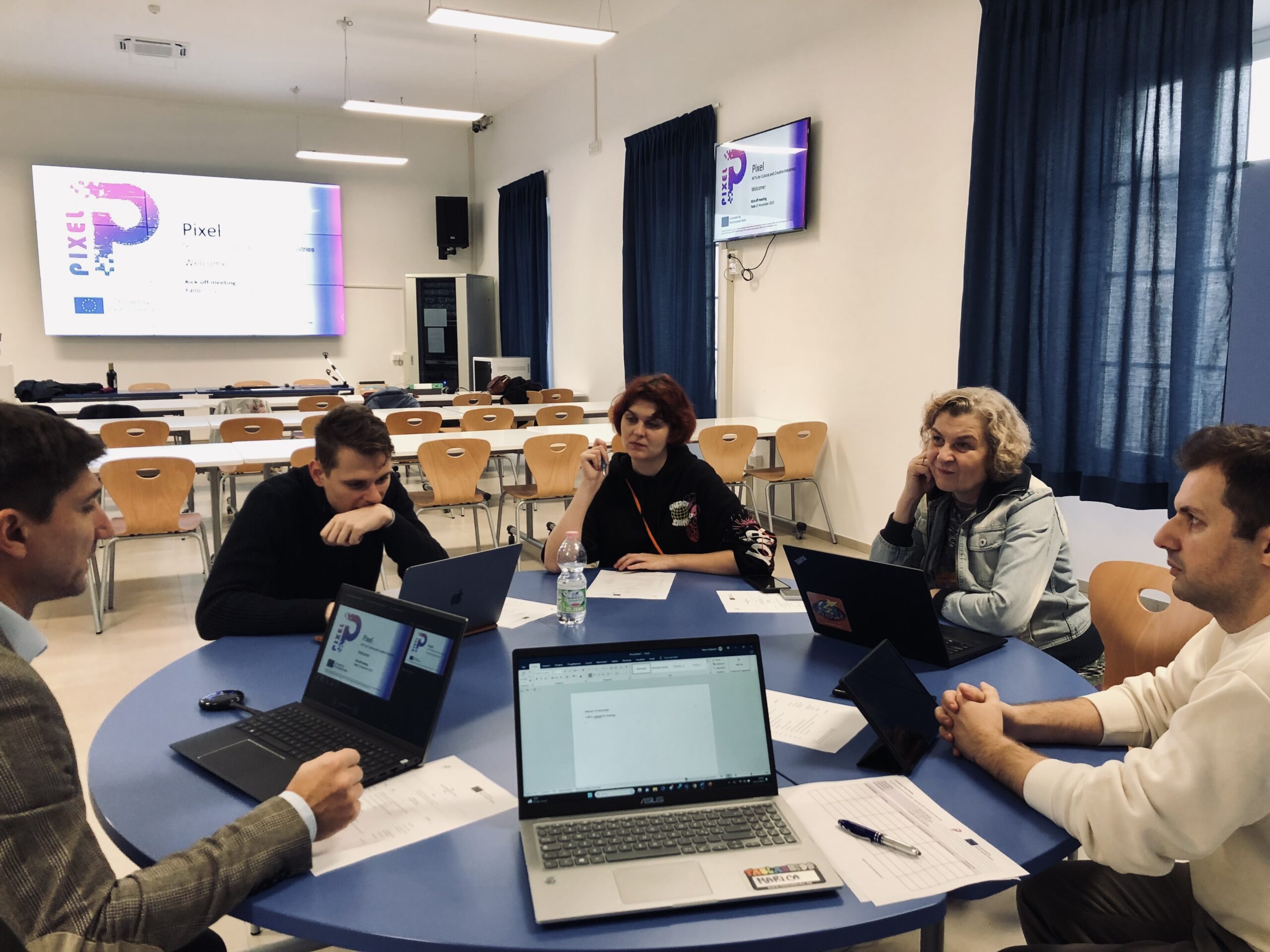
The partnership will now be engaged in conducting a local focus group aimed at local experts in blockchain and Cultural and Creative Sectors that will highlight the most relevant and common topics, contents and tools on how to access and use NFTs in the partner countries.
To stay up-to-date on project developments, soon will be available the project website and the Social media pages (Facebook Page and Linkedin Page).
ACTIVE - Final Transnational Meeting in Bratislava
The final transnational project meeting was successfully held in Bratislava (Slovakia) on November 13-14, 2023, hosted by Škola Felix in collaboration with Responsible Society. All project partners from 5 different countries (Austria, Czech Republic, Slovakia, Italy, and Poland) attended the two-day meeting, with at least 2 staff members per organization. In total, 12 participants were involved.
Throughout various sessions, participants had the opportunity to discuss the results achieved so far and the activities planned by the end of the project.
Special attention has been given to the Dissemination, Multiplier Events and the Final Report.
If you would like to stay updated on the project results, please contact us and consult this website or the other project communication channels at the following links:
MakeMyFuture Final Transnational Project Meeting
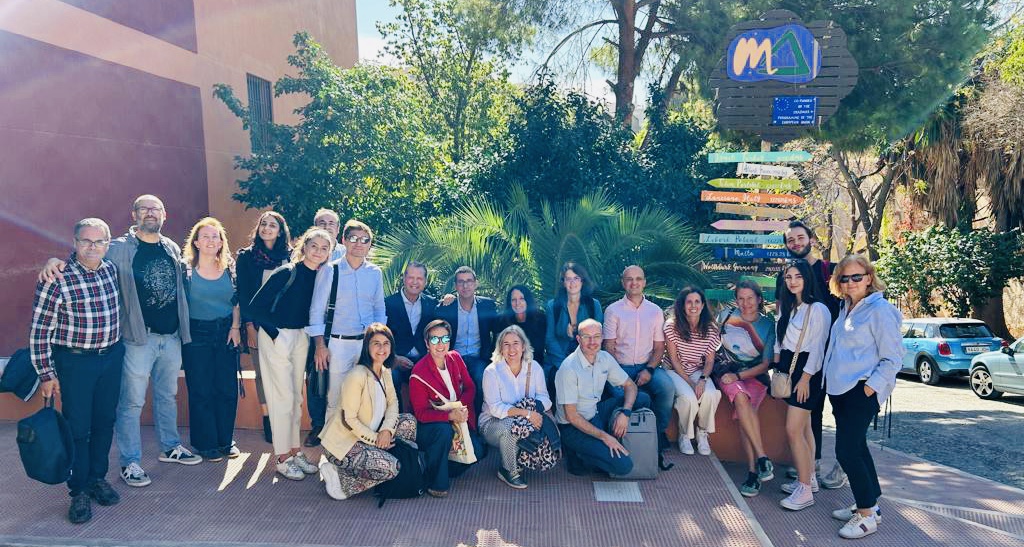
The third transnational project meeting was successfully held in Málaga (Spain) on 26-27 October 2023, hosted by the Málaga TechPark in collaboration with IES Martin de Aldehuela.
All project partners from 5 different countries (Spain, Germany, Malta, Italy and Poland) attended the two-day meeting with at least 2 staff members per organisation. A total of 20 participants were involved.
During the various sessions, participants had the opportunity to discuss the results achieved so far and the activities planned by the end of the project.
Special attention has been given to sharing partner experiences during the testing of project results and to discussing the project’s sustainability.
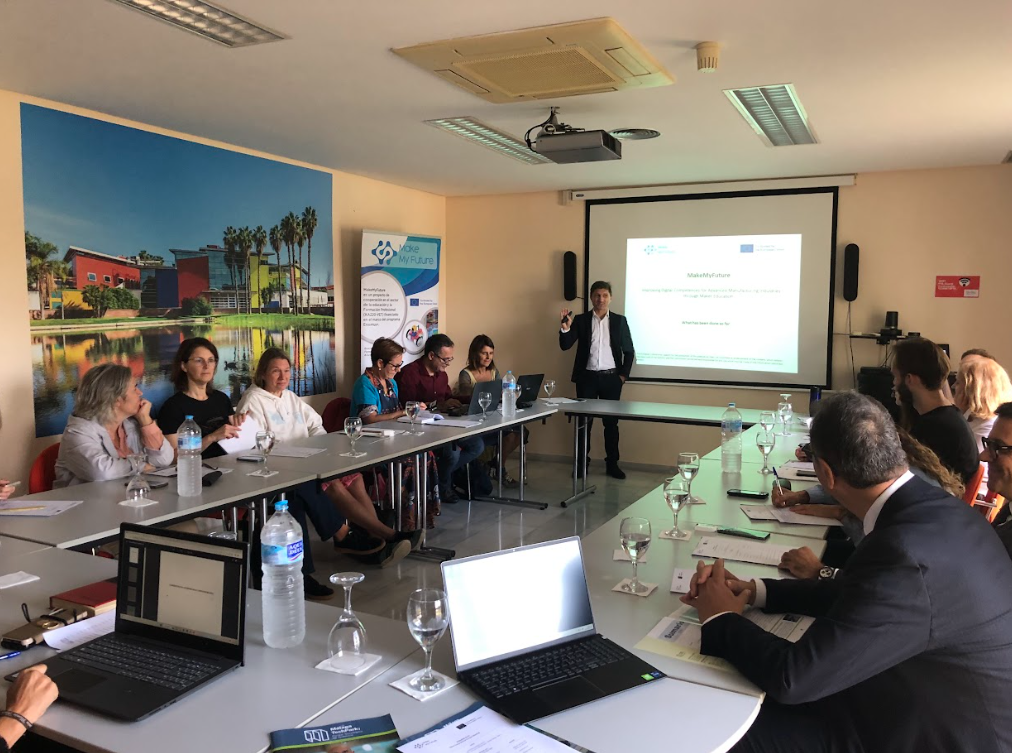
During the second day, IES Martin de Aldehuela invited all partners to visit the workshops the school organised, which used 3D Printing, Laser cutting, and maker tools.
If you would like to stay updated on the project results, please contact us and consult this website or the other project communication channels at the following links:
Moreover, you can join our Community of Practice where people with similar interests from Europe and beyond can be part of and exchange ideas, resources, and good practices related to the topics of the project.
GREEN DIGITAL - Workshops
In each partner country, we successfully conducted a series of online seminars, actively involving companies, managers, and workers.
The focus was on enhancing awareness and skills in ICT sustainability, recognizing the benefits of green practices, and planning for the sustainable implementation of ICTs.
Led by ECECE as the leading partner, the partnership defined a set of learning outcomes described in terms of knowledge, skills, and competencies for the Green Digital Workshops. Based on the highlighted learning outcomes, a framework for the workshops was produced, describing the duration of the sessions, contents, and tools.
The programme covered the following topics:
-
- Impact of ICTs (evidence and trends)
- Sustainable and effective implementation of ICTs in companies
- How to implement sustainable measures in companies
- The benefits for companies (reduction of costs, visibility, competitive advantages, etc.)
- Testimonials and practical results from the Green Digital Workshops
- Good practices
In total, 46 participants attended the conferences in all partner countries (Italy, Denmark, and Austria). They included workers, managers, or companies interested in introducing sustainable digital practices in their organizations.
To stay updated on project developments, please visit the project website and social media pages (Facebook and Linkedin).



